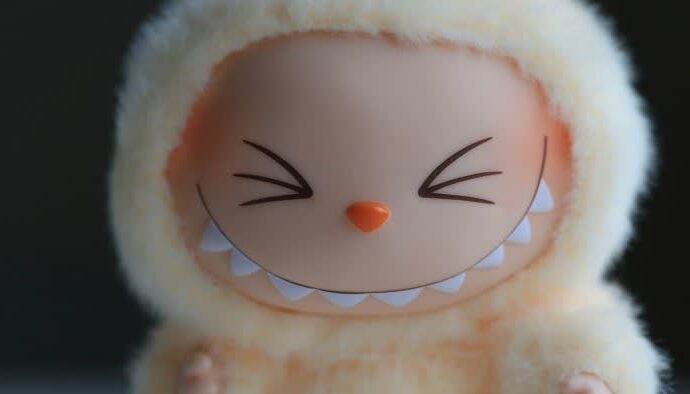Unlock the Editor’s Digest for free
Roula Khalaf, Editor of the FT, selects her favourite stories in this weekly newsletter.
Pop Mart shares on Monday suffered their biggest intraday drop since April as fears mounted that the success of Labubu, its toothy-grinned furry elf doll, was running out of steam.
The Hong Kong-listed shares of the Beijing-based toy company fell as much as 8.96 per cent in early trading — the biggest intraday drop since just after US President Donald Trump’s “liberation day” tariffs announcement in April — before closing down 6.4 per cent.
The declines took the stock’s losses to about 10 per cent since last Monday, though it is still up more than 180 per cent year to date.
Pop Mart’s stunning rally has made it one of the world’s most valuable toy companies, with a market capitalisation more than double that of Hasbro and Mattel combined, even after the recent drop.
Much of its success has been the result of the global popularity of Labubu, an ugly-but-cute doll that has earned endorsements from celebrities including David Beckham and Rihanna.
But analysts warned that Labubu’s success risked leaving Pop Mart reliant on a possibly transient trend and said the company needed to keep releasing popular characters to sustain its valuation, now about 29 times one-year forward earnings.
“Some [investors] are possibly taking profit from the recent round of sell-off,” said Jeff Zhang, a Hong Kong-based analyst at Morningstar. “But what is more concerning to us . . . is the potential cooling of demand”, which “may be sooner than [many investors had expected]”.
The sell-off took place after JPMorgan Chase on Sunday downgraded its rating for the stock to neutral and slashed its target price by 25 per cent to HK$300 (US$39). The stock is trading at about HK$259, compared with a peak of HK$336 last month.
Many of Pop Mart’s toys are sold in a so-called blind box format. Customers do not know which character from among a set they are buying until they open their packages.
The format drives repeat purchases, especially from collectors hoping to complete a set, and has given rise to a vibrant secondary market for the most desirable figurines.
Investors, analysts and toy enthusiasts have closely watched the resale value of Labubu dolls for signs of whether their popularity is ebbing.
Data from Chinese resale platform Dewu showed the price of a cotton-candy-coloured Labubu keychain had dropped 30 per cent to Rmb160 ($22) over the past two months. A series of Labubu figurines in yoga poses has seen its secondary prices fall 37 per cent since its launch in mid-March.
Another range of Labubu dolls that retailed for Rmb99 each has sold on the trading app Chaowanzu for Rmb140 to Rmb160 this month, down from Rmb200 to Rmb300 in July, according to data compiled by investment bank Jefferies.
Pop Mart blamed the decline in resale value on increased supply. “The product was significantly more accessible, and a greater number of individuals successfully purchased one,” it said. “In the long term, this will be more conducive to the further development of the company’s performance.”
The company beat analysts’ expectations in the second quarter, with four toy series outside the “Monsters” range, which includes Labubu, notching more than Rmb1bn in sales and increasing their portion of revenue.
Zhang said the recent share price fall should give “more urgency” for Pop Mart to introduce new characters.
“Previously I would say there were still multiple years for them to explore potential IPs and pipelines [and to] renew the trend of Labubu,” he said.
“I’m not sure . . . how much management is concerned with the share price movement, but if they do, there will be more urgency for Pop Mart to develop, launch and commercialise new IPs.”
Additional reporting by William Sandlund in Hong Kong

